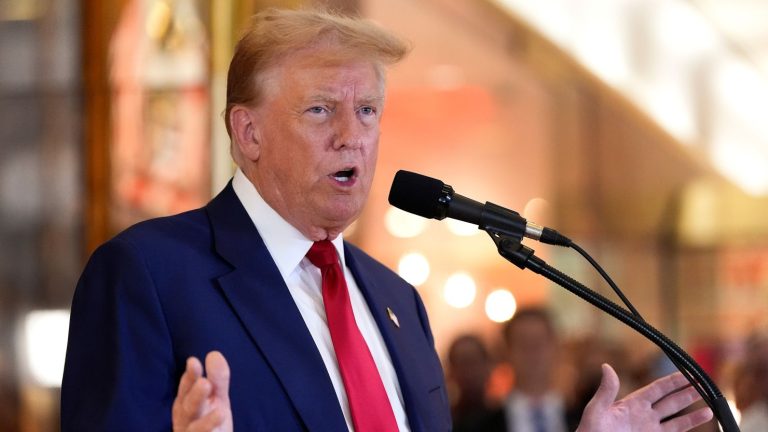President-elect Donald Trump urged the Supreme Court on Friday to delay the implementation of a potential TikTok ban until his administration can pursue a “political resolution” to the issue.
The appeal was filed as TikTok and the Biden administration presented opposing arguments to the court. TikTok argued that the statute enabling the ban, slated to take effect on January 19, 2025, should be struck down for violating the First Amendment, while the government maintained the law is necessary to address national security concerns.
“President Trump takes no position on the underlying merits of this dispute. Instead, he respectfully requests that the Court consider staying the Act’s deadline for divestment of January 19, 2025, while it considers the merits of this case,” read an amicus brief submitted on Trump’s behalf by D. John Sauer, his pick for solicitor general. The brief neither supported TikTok nor the Biden administration.
Trump’s involvement highlights his ongoing influence on national matters ahead of his inauguration. The Republican president-elect has already weighed in on several high-profile issues, including international trade tariffs and government funding negotiations.
The former president has reversed his stance on TikTok since his first term when he attempted to ban the app over national security concerns. During his 2024 presidential campaign, Trump joined TikTok and leveraged it to engage with younger voters, particularly male voters, by sharing viral, often macho-themed content.
Earlier this year, Trump acknowledged lingering security concerns regarding TikTok but stated his opposition to an outright ban. This month, he met with TikTok CEO Shou Chew at his Mar-a-Lago resort in Florida.
The filings on Friday precede Supreme Court oral arguments scheduled for January 10. The central issue is whether the law, signed by President Joe Biden in April after bipartisan Congressional approval, unlawfully infringes on free speech. The statute mandates that TikTok divest from its China-based parent company, ByteDance, or face a U.S. ban.
A three-judge panel from the U.S. Court of Appeals for the D.C. Circuit recently upheld the law, prompting TikTok to appeal to the Supreme Court.
In their brief, TikTok and ByteDance argued that the appeals court’s decision relied on speculative concerns that China could exert influence over the app’s U.S. operations. They pointed out that the government “concedes that it has no evidence China has ever attempted to do so,” framing the fears as hypothetical.
Conversely, the Biden administration defended the law, citing TikTok’s integration with ByteDance and reliance on proprietary technology maintained in China as potential risks. They argued these connections could enable Chinese authorities to access user data or manipulate content on the platform.
Trump’s brief emphasized his preference for addressing the issue through political negotiations after he assumes office.



